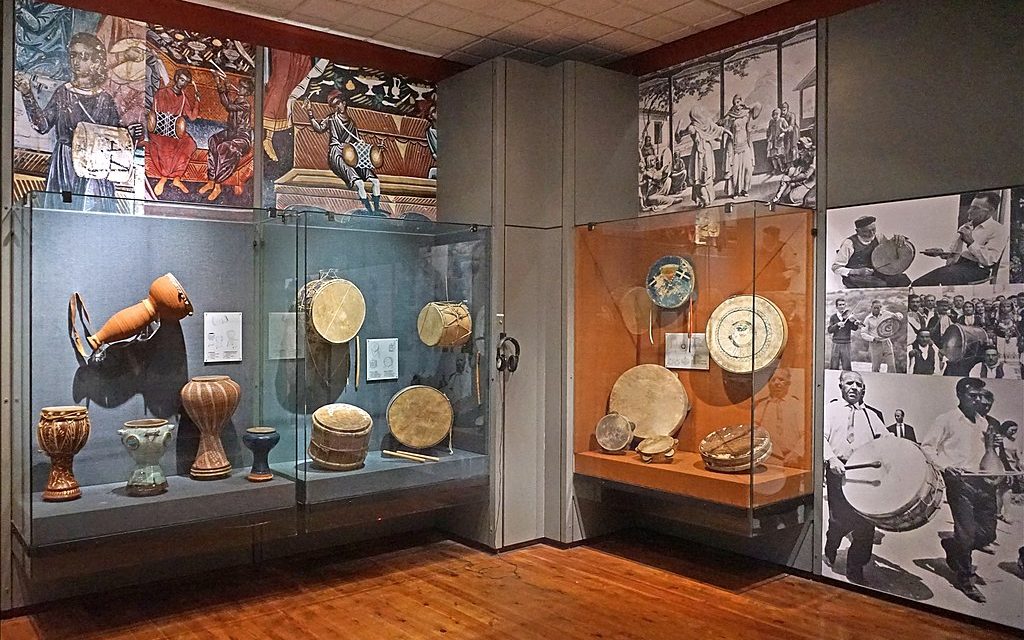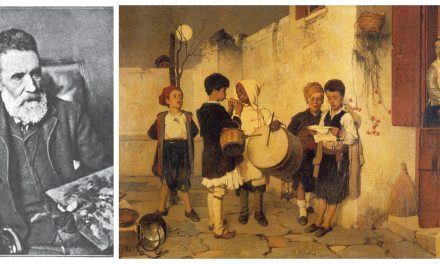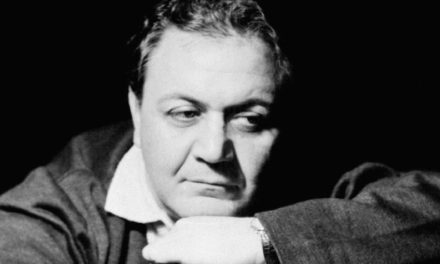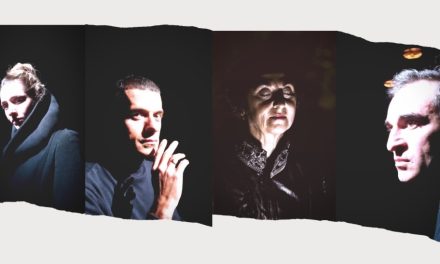The Museum of Greek Folk Musical Instruments “Fivos Anoyanakis” – Center for Ethnomusicology first opened its gates in 1991; it operates under the supervision of the Greek Ministry of Culture. It features a collection of Greek folk instruments from the 18th century to the present day, the result of 50 years of research, study and collection of folk instruments from all areas of Greece by musicologist Fivos Anoyanakis.
In 1978, Anoyanakis donated his collection (consisting of about 1,200 musical instruments and 3,000 books) to the Greek state; under his supervision, works began on the establishment of the Museum and Research Center, which is housed in a 1840s mansion in the area of Plaka, next to the Roman Agora of Athens.
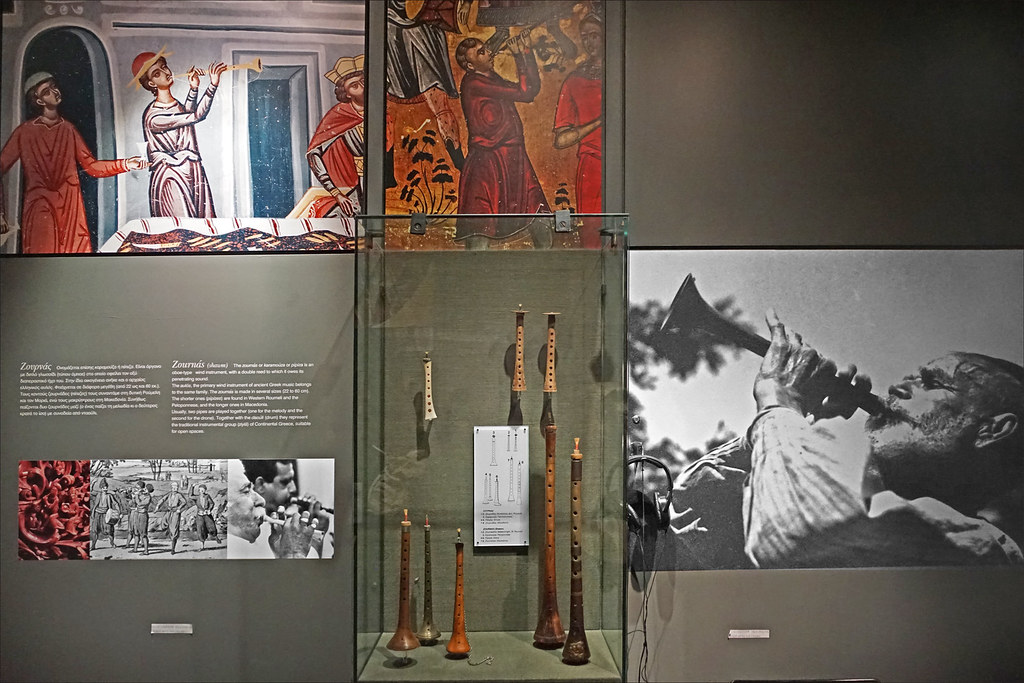
The Museum of Greek Folk Musical Instruments
The exhibition extends over three floors and comprises four sections corresponding to the families of musical instruments, as classified in ethnomusicology, according to the material used to produce sound: Membranophones (instruments that produce sound by vibrating a membrane) such as drums and tambourines, aerophones (where sound is produced by causing a body of air to vibrate) such as flutes, clarinets and bagpipes, chordophones (where stretched, vibrating strings produce the sound) such as bouzoukia, lutes, violins and lyras, and idiophones (instruments that create sound primarily by the vibration of the instrument itself) such as bells, zills (finger cymbals) etc.
The museum also uses audiovisual aids, including photographs of the instruments in their original environment, Byzantine frescoes, engravings, as well as videos showing the construction of the musical instruments, while visitors can also use headphones to listen to recordings of various instruments and their combinations.
The curators have also made an effort to present the instruments as part of a wider context, through photographic material, slide shows and videos demonstrating their creation, use and significance. Additionally, the museum houses a large specialized musicological library, featuring 3,000 volumes, donated by Fivos Anoyanakis.
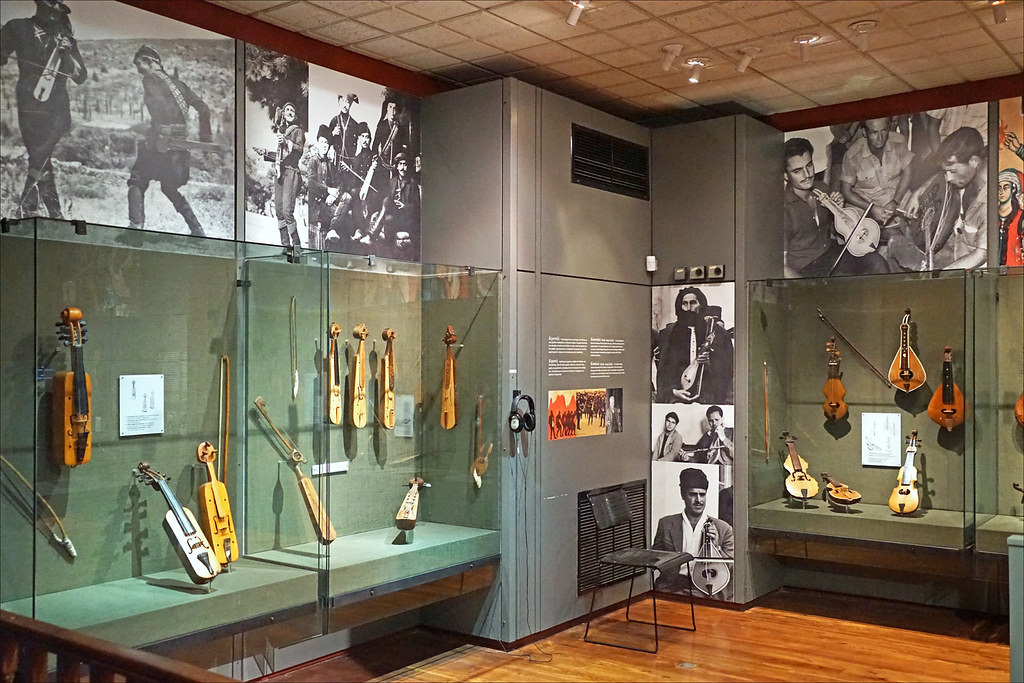
Center and orchestra
The Center for Ethnomusicology hosts and organizes various musical and artistic projects and events, and also educational activities including seminars, lectures and training programs, aiming to raise awareness on issues related to Greek musical heritage. Its lecture hall hosts seminars-lectures on topics related to Greek music and dance tradition on a weekly basis, with free admission.
The orchestra “Fivos Anoyanakis” consists of young musicians who follow the seminars on musical instruments and singing, which have been organized since 1993 by the Association of Friends of the Museum of Greek Folk Musical Instruments.
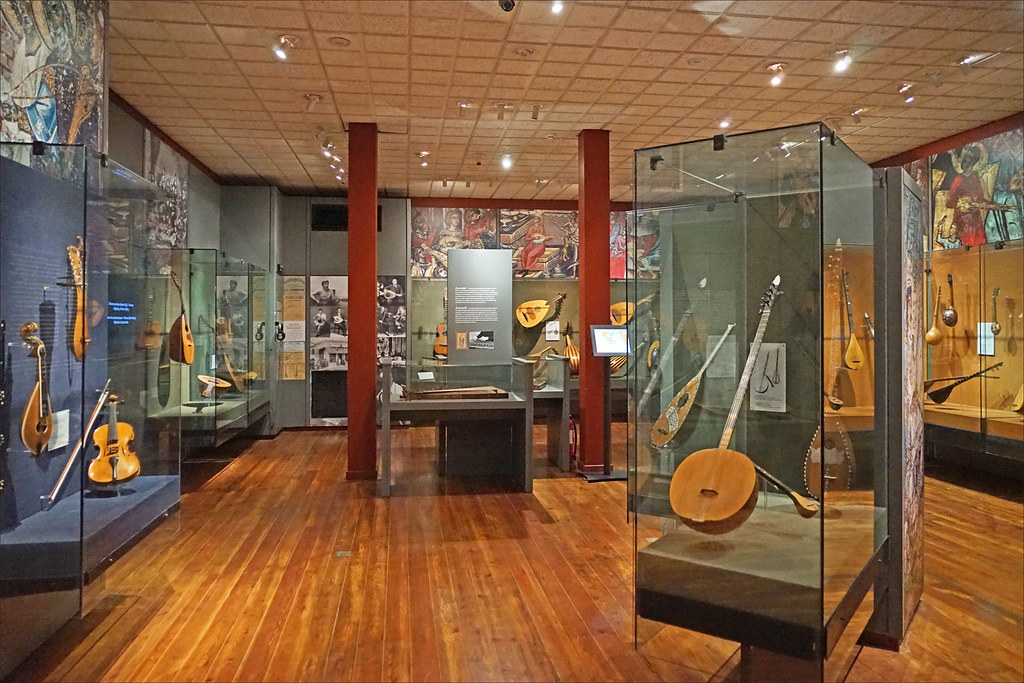
The aims of the Museum and the Research Center, as stated in the founding charter, are the following:
1) The collection, preservation and display of folk musical instruments and of any item or material useful for the research, study and promotion of the Greek folk music tradition in general.
2) The promotion of research and study of ethnomusicology and the documentation and dissemination of Greek traditional music.
3) The preservation, study, promotion and dissemination of Greek folk music and the Byzantine musical tradition, both in Greece and internationally, by all possible means.
4) The establishment of a special musicological library and audiovisual archive.
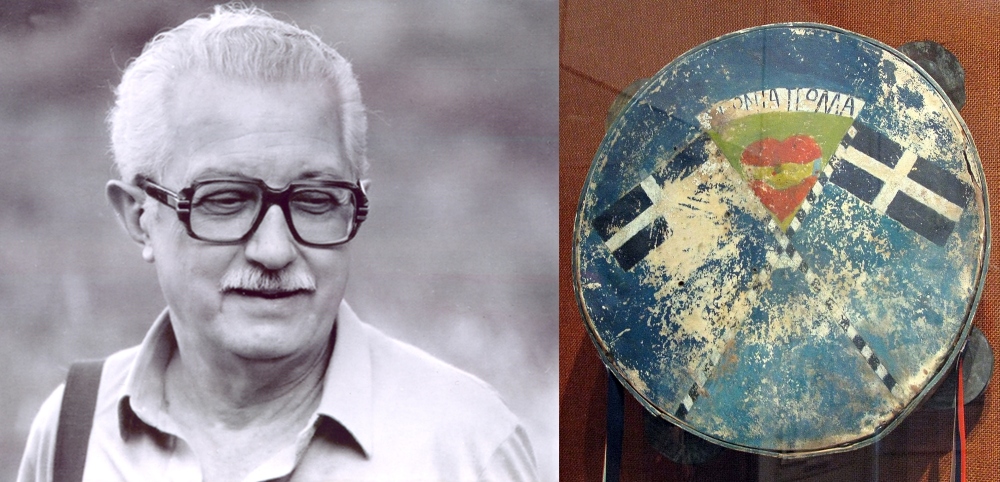
Fivos Anoyanakis
Fivos Anoyanakis was born in Heraklion, Crete in 1915. He studied violin, counterpoint, fugue and advanced music theory, and worked as a music critic for newspapers and magazines; he was the author of important musicological works. He specialized in Greek folk music, and was among the first to point out the musical and artistic value of the rebetiko music, linking it to the traditions of byzantine music and Greek folk song.
He was involved in field music research in Greece and Cyprus with the Peloponnesian Folklore Foundation. He was a member of the Union of Greek Critics for Drama and Music and of the International Musicological Society (Basel). He served as chairman of the Artistic Committee of the Greek National Opera (1984-87) and in 1991 he was awarded an honorary doctorate by the University of Crete.
Read also via Greek News Agenda: Creative Greece ׀ Alexis Rotskos and Yannis Tsiligiris on the Art of Making Traditional Musical Instruments; Greek music and festivals recognized as UNESCO’s Intangible Cultural Heritage; Rebetiko music: From the margins to the mainstream; Tower of the Winds: The world’s oldest “weather station”
N.M. (Translated from an original article in Griechenland Aktuell; intro photo: Display of membranophones at the Museum of Greek Folk Musical Instruments [by Jean-Pierre Dalbéra via flickr])

